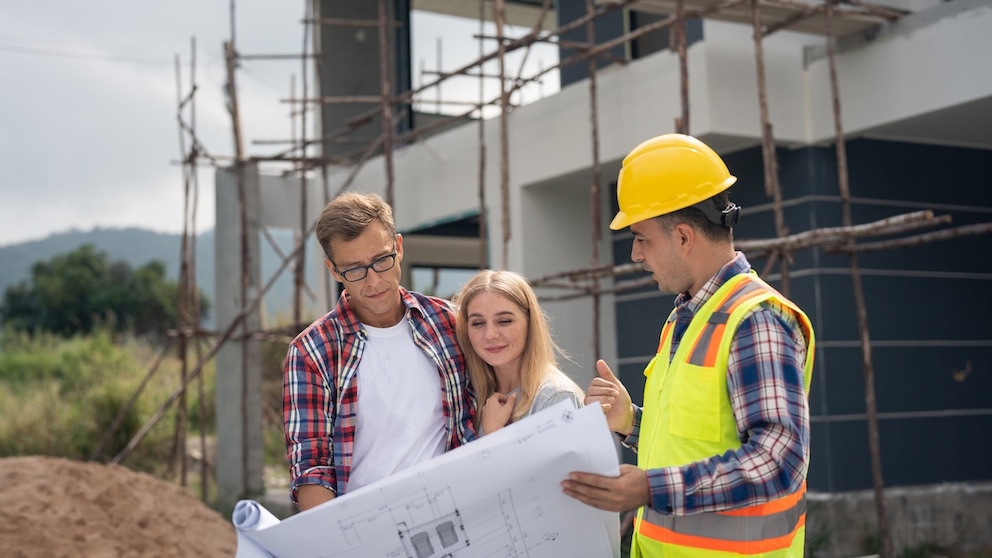March 31, 2025, 2:42 pm | Read time: 2 minutes
Building a house — without nasty surprises in the ground? This is exactly where an often underestimated expert opinion comes in and, in extreme cases, can even protect against a total loss. myHOMEBOOK explains why it’s worth playing it safe before you break ground.
Although a ground survey is not mandatory for private builders, it is highly recommended. It provides important information about load-bearing capacity, groundwater, and soil properties — and can prevent costly mistakes.
Why a Ground Survey Can Be Worthwhile
Even before the actual house planning begins, prospective builders should have what lies beneath the plot checked. Although a ground survey is not required by law, it can protect future builders from serious mistakes and financial risks. The document describes in detail the soil conditions, the load-bearing capacity, and the groundwater level of a building site, explains Erik Stange from the Bauherren-Schutzbund.
It is particularly advisable to have the report drawn up before purchasing a plot of land. This is because not every building site is automatically suitable for building with a basement — or for building a house at all.
When the Basement Becomes a Cost Trap
Whether a basement makes sense or becomes an expensive problem depends heavily on the soil. “A basement can be problematic if the groundwater level is very high,” explains Stange. In such cases, cost-intensive waterproofing and drainage systems are necessary to prevent moisture damage later on.
Other soil properties can also speak against a basement — such as soft, organic layers or layers with a high risk of subsidence. These do not provide the necessary stability and make safe construction more difficult.
Critical Soil Conditions Can Jeopardize House Construction
It’s not just the basement that can be problematic — the entire construction project can also be called into question if the land has unfavorable characteristics. According to Stange, building a house can be critical overall if the property has extremely unfavorable soil conditions — such as a low load-bearing capacity. Or if there is a risk of a landslide.
In such cases, complex technical solutions are necessary, which can significantly increase the construction costs. Sometimes, the risks and additional costs are so high that building a house is hardly economically justifiable.

Flexible Solutions 6 Advantages of Precast Ceiling Panels When Building a House

Experts Clarify Heat Pump in an Apartment Building? The Most Important Questions and Answers

Planning tips Planning a garden shed: Do you really need planning permission?
Soil Survey as a Decision-Making Aid
A subsoil survey provides a realistic assessment of the construction possibilities and risks — and thus serves as a sound basis for decision-making. In rare cases, it may be advisable to abandon a building project if the risks and costs make it almost impossible to implement economically. Obtaining a subsoil survey can, therefore, not only minimize risks but also avoid expensive mistakes.

